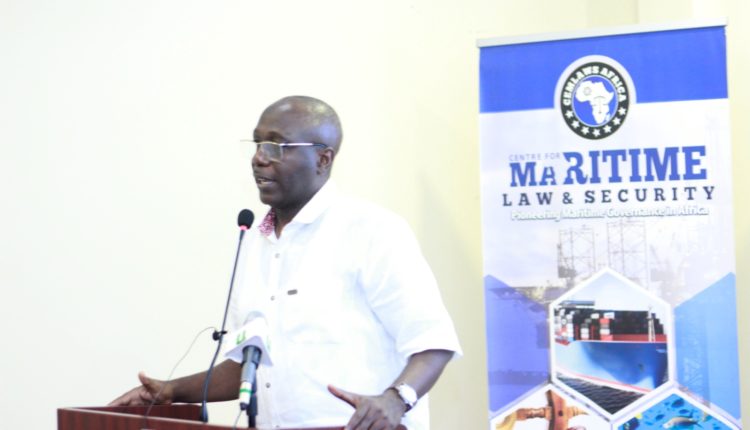The Convener of Fisheries Alliance, Mr Kyei Kwodwo Yamoah has revealed that, a new report by the Environmental Justice Foundation (EJF) indicates Ghana is missing out on a $14.4 to $23.7 million dollars every year in fishing licenses fees and fines from trawler.
At a training workshop for a selected media practitioners in Accra, Mr. Kyei Kwodwo Yamoah, said Ghana’s fees and fines are very low for local vessels and yet 90% of Ghanaian trawl fleet are owned by Chinese corporations, who used local ‘front’ companies to register as Ghanaian just to circumvent the laws of Ghana.
The Executive Director of the Centre for Maritime Law and Security of Africa, Dr. Kamal-Deen Ali, said despite the laws of Ghana prohibit foreign-owned vessels to fish in the country, many of fishing vessel flying Ghana’s flag were owned by foreigners with locals acting as fronts for huge benefits.
He told journalists that the training workshop formed part a project titled; “Promoting local capacity to address the destabilizing impacts of foreign fishing vessels in the Gulf of Guinea and Mauritania”.
According to him, the strategic objectives of the project was increase CSOs monitoring, media reporting, and public awareness of destabilizing influences of Illegal, Unreported and Unregulated fishing (IUUF)and Distant Water Fishing (DWF) vessels in Ghana.
He believes that, to achieve the objective, the implementation partners have developed a training package to equip journalists with adequate knowledge and skills for reporting competently on the fishing activities of foreign distant water vessels, and government’s fishing-relating decisions and developments.
Dr. Kamald-Deen said the project, which was being coordinated by CEMLAWS Africa, and the Centre for Coastal Management (CCM), University of Cape Coast, is funded by the Department of State, U.S Embassy in Accra.
The Executive Director of the International Secretariat of the Fisheries Transparency Initiative (FiTI), Sven Biermann has observed the transparency in fisheries management yields multiple benefits such as strengthening the ability for effective oversight, accountability, public dialogue and enhances the capacity to manage fisheries sustainably based on best available information.
The Director of the Centre for Coastal Management, Prof Dennis W. Aheto, agrees that the lack of information in Ghana was making things difficult to ascertain destabilizing impact of DWFVs on Ghana and some other countries included in the project, admitting that, activities of the DWFVs was creating socio-economic impacts on fishing communities.


Comments are closed.